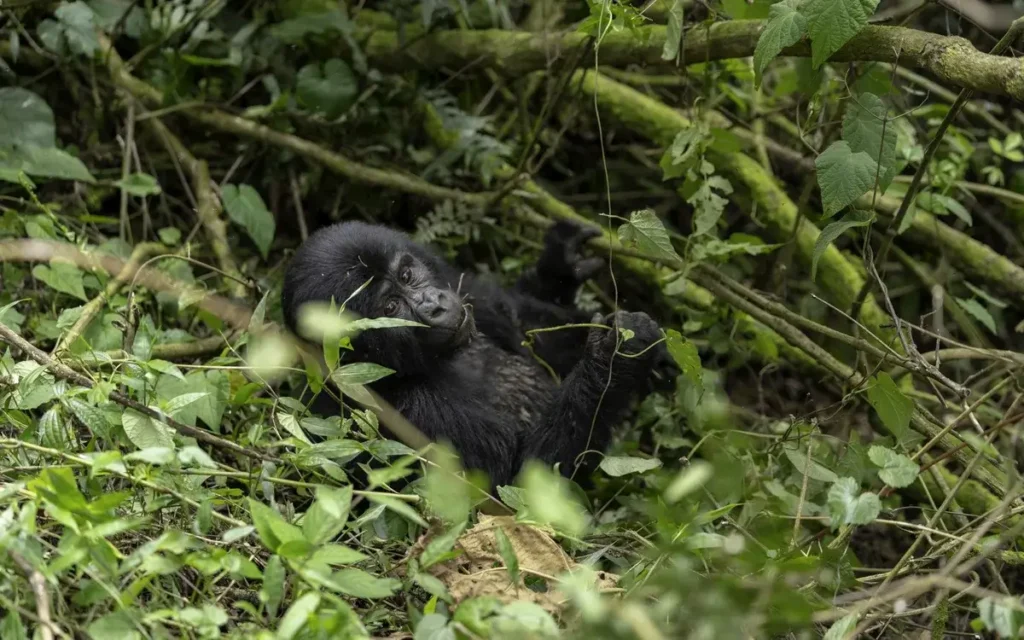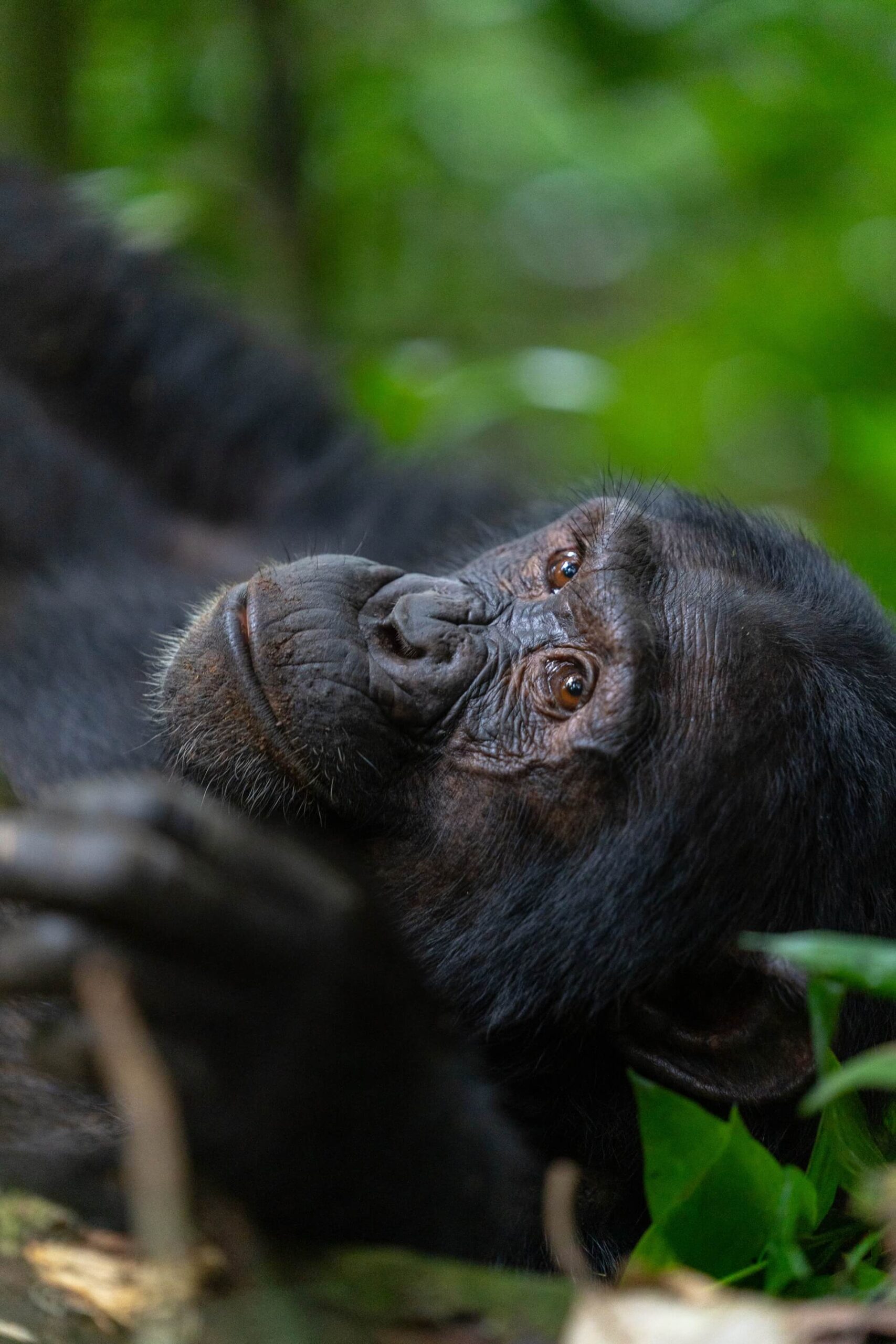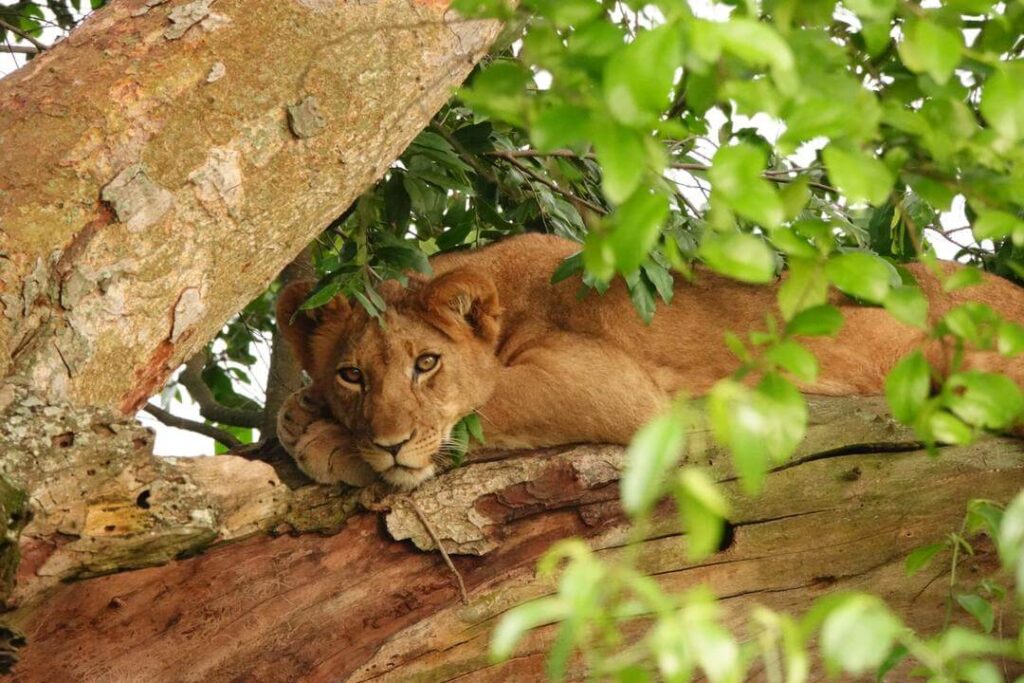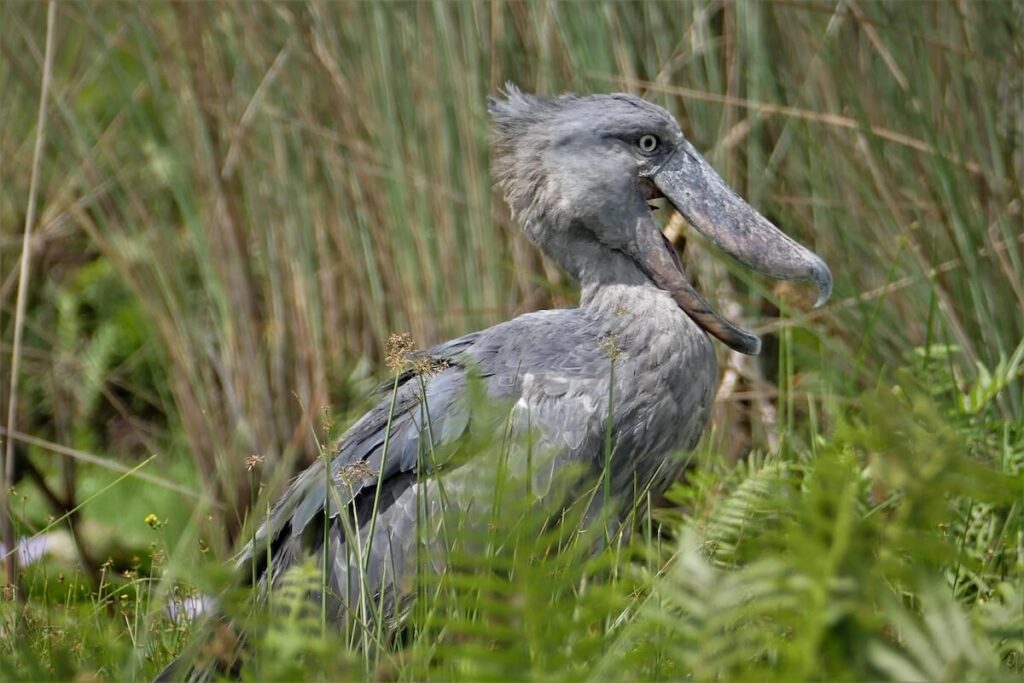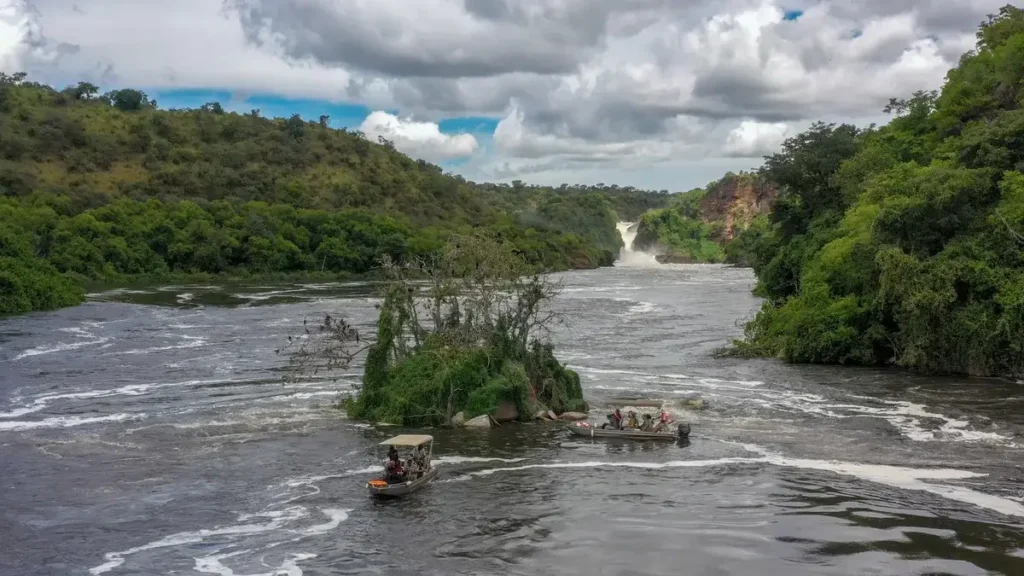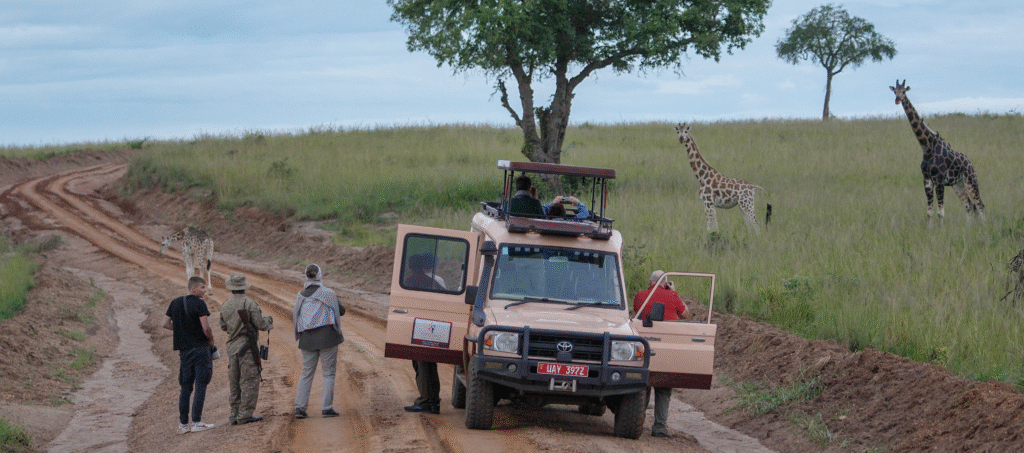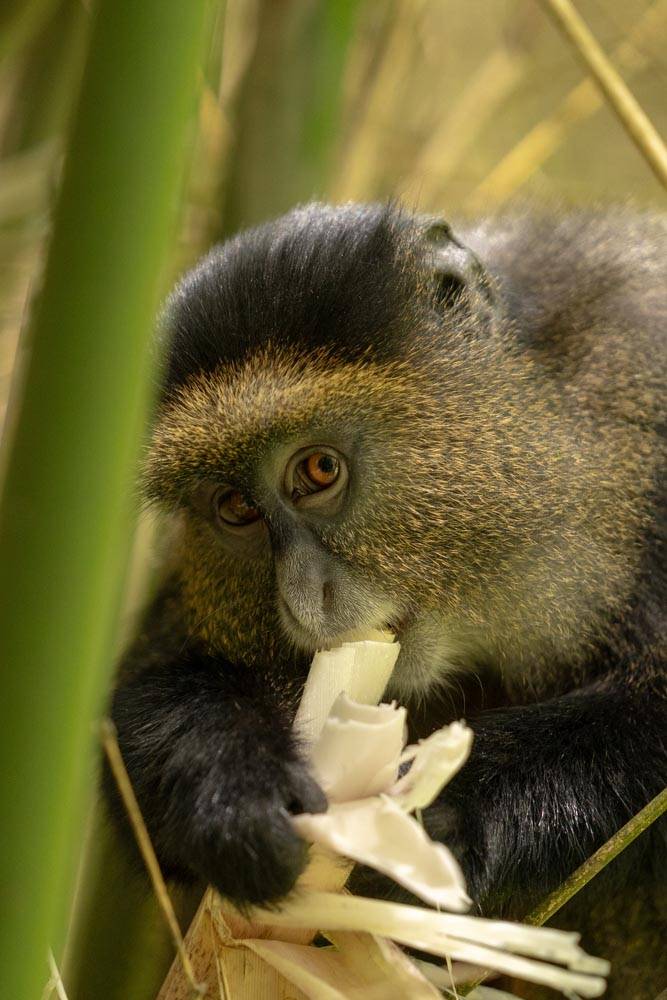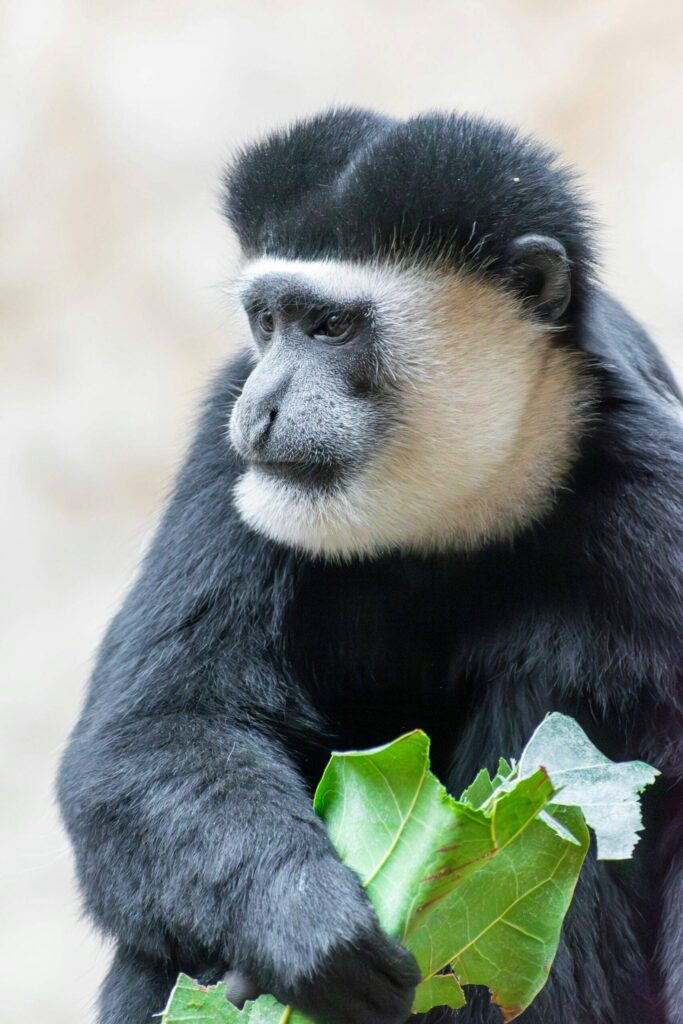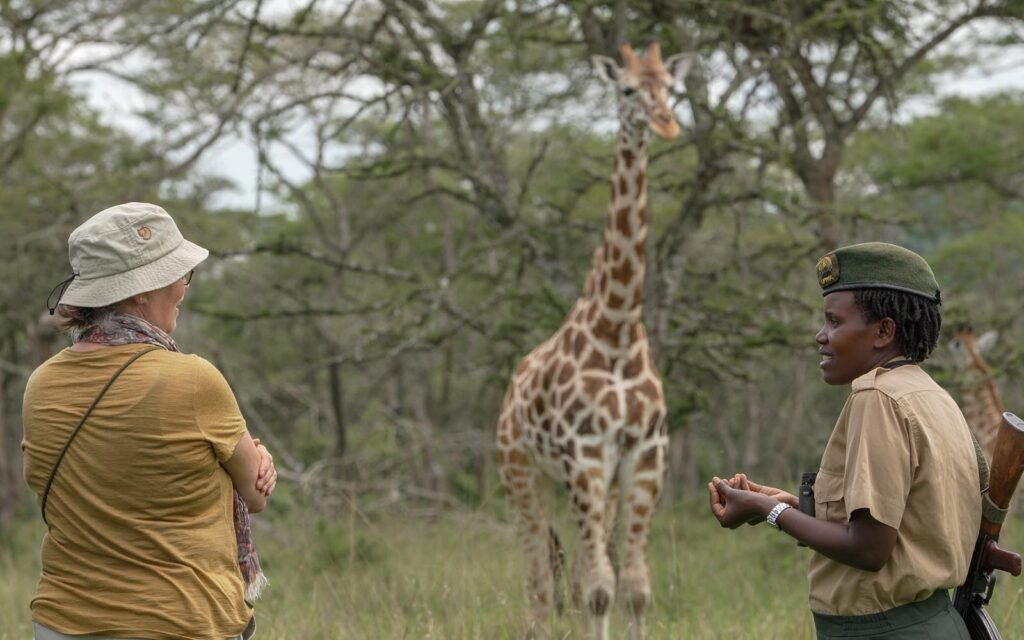Uganda: The Pearl
of Africa
Discover an extraordinary destination where mist-covered mountains harbor endangered gorillas, powerful waterfalls thunder through savanna plains, and some of Africa’s most diverse wildlife thrives across varied landscapes. This is Uganda—Winston Churchill’s “Pearl of Africa”—a land of unparalleled natural beauty and authentic cultural experiences.
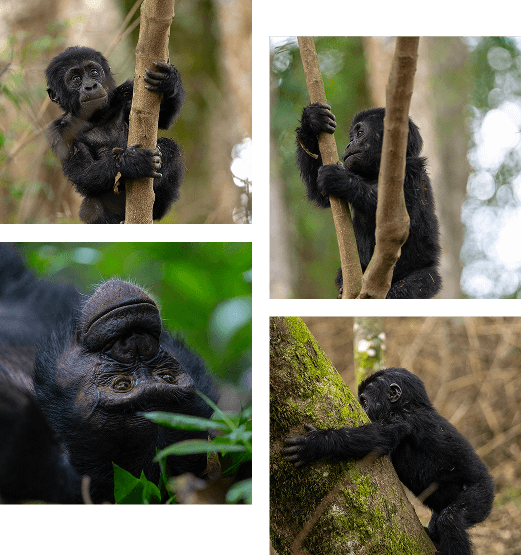
Uganda at a Glance
Best Time to Visit
Year-round; June-September and December-February (dry seasons) optimal for trekking
Ideal Trip Duration
7-14 days
Signature Wildlife
Mountain gorillas, chimpanzees, tree-climbing lions, elephants, shoebill storks
Key Highlights
Gorilla trekking, chimpanzee tracking, Big Five safari, boat cruises, cultural immersion
Getting There
International flights to Entebbe International Airport
Visa Requirements
eVisa available online before arrival
Currency
Ugandan Shilling (UGX)
Languages
English (official), Swahili, plus 40+ indigenous languages
Combines Well With
Rwanda, Tanzania, Kenya
Recommended Uganda Itineraries
Birder’s Paradise
Crafts and Community Safari
Kikooko Luxury
North Eastern Uganda Safari
Top National Parks & Reserves
Bwindi Impenetrable National Park
Home to over half of the world's remaining mountain gorillas
- Key Wildlife: Mountain gorillas, forest elephants, 350+ bird species
- Best Time: Year-round (slightly drier June-August, December-February)
- Unique Experiences: Gorilla trekking, Batwa cultural experiences, forest walks
- Landscape: Misty mountainous rainforest with dense undergrowth
Queen Elizabeth National Park
Uganda's most diverse park with savanna, forest, wetlands, and lakes
- Key Wildlife: Tree-climbing lions, elephants, hippos, buffaloes, 600+ bird species
- Best Time: January-February and June-September (dry seasons)
- Unique Experiences: Boat safaris on Kazinga Channel, chimp tracking in Kyambura Gorge, lion tracking
- Landscape: Open savanna, shadowy forest, glistening lakes, volcanic features
Murchison Falls National Park
Where the mighty Nile explodes through a narrow gorge
- Key Wildlife: Elephants, giraffes, buffaloes, hippos, Nile crocodiles
- Best Time: December-February (dry season)
- Unique Experiences: Launch trips to the falls, game drives, top-of-falls hike
- Landscape: Savanna, riverine woodland, spectacular waterfall
Kibale National Park
Primate capital of the world
- Key Wildlife: 13 primate species including 1,500+ chimpanzees, 350+ bird species
- Best Time: June-September and December-February (drier seasons)
- Unique Experiences: Chimpanzee tracking, nocturnal forest walks, bird watching
- Landscape: Lush tropical rainforest, swamp forests, grasslands
Kidepo Valley National Park
Remote wilderness with spectacular landscapes
- Key Wildlife: Elephants, lions, cheetahs, giraffes, zebras, 475+ bird species
- Best Time: September-March (dry season)
- Unique Experiences: Walking safaris, cultural visits to Karamojong villages
- Landscape: Semi-arid valleys, rugged mountains, seasonal rivers
Signature Wildlife Experiences
Mountain Gorilla Trekking
Face-to-face with gentle giants
Trek through misty forests to spend an unforgettable hour with habituated gorilla families. Watch juveniles play, mothers care for infants, and silverbacks command their families with quiet authority. Available in Bwindi Impenetrable Forest and Mgahinga Gorilla National Park, this is often described as life’s most moving wildlife encounter.
Best time: Year-round (slightly easier hiking during dry seasons)
Chimpanzee Tracking
Our closest relatives in their natural habitat
Follow the calls of chimpanzees through the rainforest until you’re immersed in their dynamic community. Watch as they use tools, interact socially, and move with incredible agility through the forest canopy. Kibale Forest offers Uganda’s premier chimp experience, with additional opportunities in Budongo Forest and Kyambura Gorge.
Best time: Year-round (slightly easier hiking during dry seasons)
Tree-Climbing Lions
A rare and unusual behavior
Witness the unique phenomenon of lions resting in fig trees in Queen Elizabeth National Park’s Ishasha sector. This unusual behavior, seen in only two locations in Africa, makes for extraordinary photography opportunities and memorable wildlife viewing.
Best time: Year-round (especially visible during midday heat)
Shoebill Stork Tracking
One of Africa's most sought-after bird sightings
Search for the prehistoric-looking shoebill stork in the papyrus swamps of Mabamba Bay, Lake Victoria. Standing up to 1.5 meters tall with a massive bill, this rare and prehistoric-looking bird is a prize sighting for wildlife enthusiasts.
Best time: Year-round (best December-March)
Murchison Falls Experience
Where the Nile explodes through a 7-meter gap
Approach by boat to the base of the world’s most powerful waterfall, where the entire Nile River forces itself through a gap just 7 meters wide. Feel the spray and thunderous roar as millions of gallons of water crash through this narrow channel every minute.
Best time: Year-round (most spectacular during rainy seasons)
Signature Cultural & Adventure Experiences
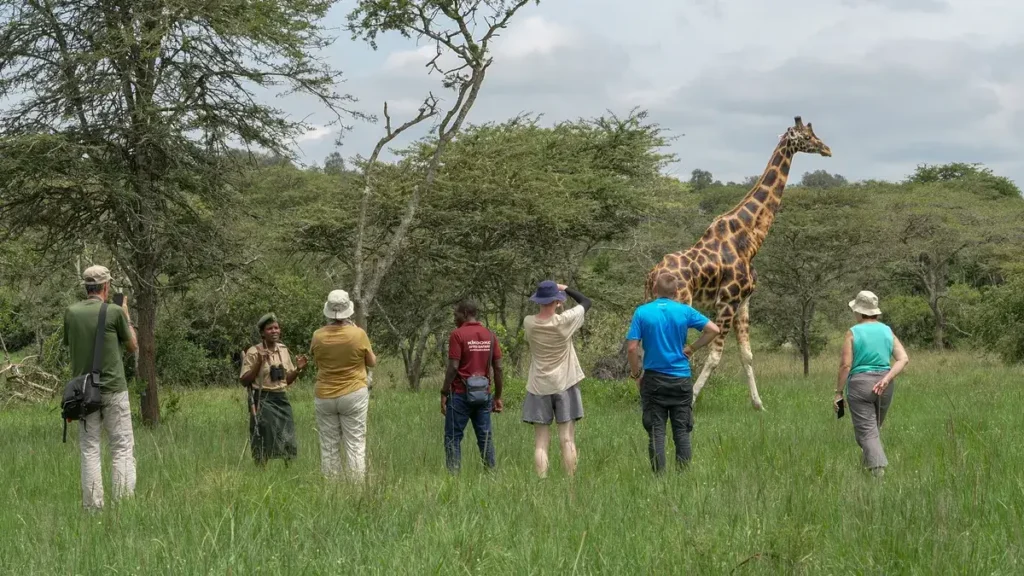
White Water Rafting on the Nile
Experience world-class rapids at the source of the Nile near Jinja, with options ranging from family-friendly to extreme adrenaline challenges.
Batwa Cultural Experience
Coffee & Tea Plantation Tours
Mountain Hiking Adventures
Community Conservation Initiatives
When to Visit Uganda: Seasonal Guide
Dry Seasons (December-February & June-September)
- Easier trekking conditions with drier trails
- Excellent general wildlife viewing as animals concentrate around water sources
- Clearer photography conditions
- Higher visitor numbers, especially for gorilla trekking
- Peak season rates at most lodges
Green Seasons (March-May & October-November)
- Lush, vibrant landscapes ideal for photography
- Excellent birdwatching with migratory species present
- Lower visitor numbers and special offers at many properties
- Some trails and roads may be challenging after heavy rain
- Greater dispersal of wildlife in some parks
Featured Accommodation
Beyond Bwindi Lodg
Kyambura Gorge Lodge
Paraa Safari Lodge
Conservation & Community Impact
Mountain Gorilla Recovery
One of conservation’s greatest success stories – mountain gorilla numbers have increased from 620 to over 1,000 individuals in the last decade, partly funded by gorilla trekking permits.
Community-Based Tourism
Kikooko Foundation Projects in Uganda
Practical Information
Health & Safety
Visa & Entry Requirements
Gorilla Trekking Permits
Accommodation Types
Getting Around
- Category: Uganda, Wilderness

